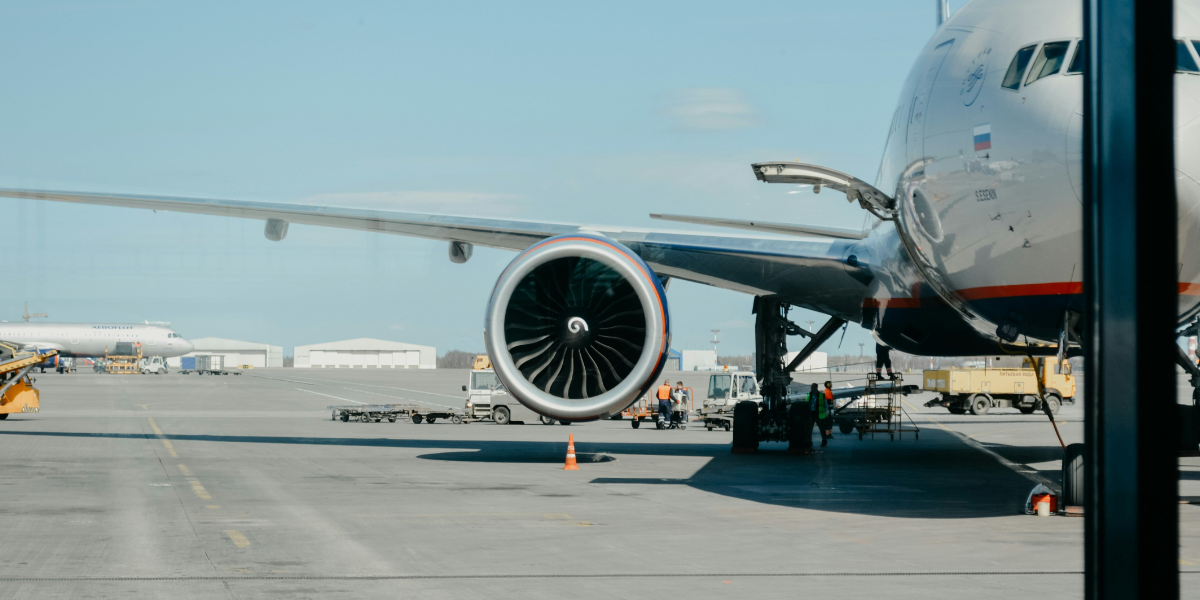
The aviation industry stands at a pivotal moment as the Carbon Offsetting and Reduction Scheme for International Aviation (CORSIA) transforms from regulatory framework into market reality.
CORSIA is a global scheme from the International Civil Aviation Organization (ICAO) designed to stabilize carbon emissions from international aviation at 2019 levels. To meet these targets, airlines use Eligible Emissions Units (EEUs), which are carbon credits from projects that reduce or remove greenhouse gas emissions. These credits, often managed under frameworks like Article 6 of the Paris Agreement, represent verified emission reductions. This evolution represents not a crisis, but a catalyst for innovation and strategic positioning in the decarbonization journey.
>> RELATED: Carbon Credit Retirements Hit All-time High, Quality Drives Market Evolution

Market Dynamics and Strategic Advantages
The carbon credit market is experiencing significant growth as airlines prepare for CORSIA's first phase requirements. This surge marks a fundamental shift, opening new opportunities for early adopters and strategic players in the aviation sector. Airlines proactively engaging with this market aren't just meeting compliance, they're positioning themselves as leaders in sustainable aviation.
The supply of CORSIA-eligible emissions units (EEUs) is creating a premium market. Here, quality and strategic sourcing are becoming competitive advantages. Forward-thinking airlines are finding that early engagement with CORSIA creates multiple benefits beyond just compliance.
Current market activity is driving innovation in three key areas:
Carbon project development is evolving, with new methodologies and project types emerging to meet aviation’s specific requirements. Strategic partnerships are also taking shape, as airlines form alliances with carbon developers and host countries to secure supply. At the same time, advanced technology platforms are helping streamline credit procurement and verification.
Recent discussions at the IATA summit in New Delhi reinforced this urgency. As Decarbonfuse reports, despite reaffirmed net-zero pledges from over 350 airlines, frustration is mounting over SAF costs, fuel supply gaps, and policy hurdles. The SAF supply still meets less than 1% of global jet fuel demand, and high prices—sometimes five times that of fossil-based fuel—are stalling progress. IATA is calling for long-term contracts, better policy design, and stronger global alignment through CORSIA to accelerate climate action and stabilize costs across the aviation value chain.
Key Market Facts
- 129 countries are voluntarily participating in CORSIA's first phase.
- Airlines need to purchase up to 144 million EEUs by January 2028.
- Credit prices are projected to reach $25–$36 per tonne by 2027.
- 15 airlines purchased credits at $22.25/tonne in March 2025.
- Over 4,000 projects meet ICAO's eligibility criteria globally.
Global Supply Chain Innovation
The carbon credit supply chain is transforming quickly, with new players emerging to meet aviation's specific needs. After successful COP29 negotiations on Article 6 of the Paris Agreement, the supply of EEUs is expected to expand significantly in 2025, creating more availability and choice.
Countries are stepping up as carbon credit suppliers through strategic approaches:
- Guyana's pioneering success: Leading with 15.84 million ART TREES credits from jurisdictional REDD+ programs.
- Regional expansion: Multiple countries are developing Article 6 frameworks for international credit transfers.
- Project diversification: New methodologies cover forestry, renewable energy, and industrial emissions, offering a broader range of credit types.
This expansion lets airlines diversify their carbon portfolios across various locations and project types. The growing supply base helps companies align carbon offsetting strategies with broader corporate sustainability goals while managing supply chain risk.
"CORSIA is a central element of our collective commitment to achieve carbon-neutral growth from 2020 onward in international aviation. This scheme provides a global market-based measure that enables airlines to take effective climate action while continuing to connect the world."
"CORSIA is a central element of our collective commitment to achieve carbon-neutral growth from 2020 onward in international aviation. This scheme provides a global market-based measure that enables airlines to take effective climate action while continuing to connect the world."
Juan Carlos Salazar, ICAO Secretary General (source: ICAO press release, June 2023)

>> In Other News: Beijing Hosts Inauguration of ICTO, Uniting 50 Global Leaders to Advance CCUS Innovation
Technology and Market Infrastructure
The technological infrastructure supporting CORSIA is getting better all the time. Advanced platforms give airlines secure, transparent trading environments, ensuring transaction integrity and price clarity.
Key technological developments include:
- Trading platforms: Xpansiv's ACE integrates with IATA settlement systems, giving airlines real-time price tracking and efficient trading.
- Credit rating systems: Independent quality assessments from companies like Sylvera provide insights into credit quality, helping airlines make informed decisions about their purchases.
- Analytics tools: Offer real-time market intelligence and risk assessment, empowering smarter procurement.
- Blockchain verification: Provides immutable transaction records and transparent credit tracking, boosting confidence.
A recent milestone supporting CORSIA implementation came from Abaxx Exchange, which completed its first delivery of CORSIA Phase 1 Carbon Offset Unit Futures. The trade, priced at $24.25/tCO₂e, marked the first live transfer of CORSIA-eligible credits through a regulated futures market. It shows how market infrastructure is maturing to support real price discovery, risk management, and reliable delivery of environmental assets.
These technological advances reduce market friction and increase confidence in carbon credit investments. Airlines can now make data-driven decisions about credit quality and procurement timing. While challenges like potential supply constraints or price fluctuations might arise, the industry is proactively developing these innovative solutions and fostering collaboration to ensure steady growth and continued positive momentum.
| Market Phase | Timeline | Key Characteristics |
|---|---|---|
| Phase I (Pilot) | 2024-2026 | Voluntary participation, market establishment. |
| Phase II (First) | 2027-2029 | Mandatory for major aviation nations. |
| Phase III (Second) | 2030-2035 | Full global implementation. |
Integration with Broader Sustainability Goals
CORSIA is sparking a bigger transformation in aviation sustainability. It's creating strong connections with sustainable aviation fuel (SAF) adoption and other decarbonization efforts. Airlines are seeing carbon credits as a part of their overall sustainability plan.
Bayer warns airlines must lock in long-term SAF deals to guarantee farmer supply and hit net-zero targets.
This integration follows a strategic framework that includes:
Operational efficiency: Immediate emission reductions through route optimization and fuel management.
Fleet modernization: Investing in next-generation aircraft with lower emissions.
Alternative fuels: Scaling up SAF adoption across route networks, a key focus for carbon-capture and hydrogen-production industries.
Carbon offsetting: CORSIA credits as a bridge solution during the transition to full decarbonization.
A broader market shift is already underway. New data shows that despite a flat 2024, the carbon credit market is poised for growth in 2025, led by corporate climate goals and rising interest in high-integrity carbon removal solutions. This trend complements CORSIA’s momentum and supports the integration of carbon credits into long-term decarbonization strategies.
The market dynamics around CORSIA mirror what we've seen with SAF adoption. Early movers in SAF partnerships now get preferred access and pricing, a pattern likely to repeat in carbon credit markets. This creates clear synergies for those in carbon-capture and hydrogen-production, as their innovations directly contribute to the supply of high-quality carbon credits and sustainable fuels.
New IATA data shows SAF prices in Europe are now 5x higher than fossil jet fuel - putting climate goals at risk without smarter policy design. CORSIA will help us achieve the goal of carbon-neutral growth by requiring airlines to offset any increase in emissions from international flights above 2019 levels.
The airline industry supports CORSIA because it is a pragmatic, market-based mechanism that encourages emissions reductions and innovation across the sector.

"CORSIA will help us achieve carbon-neutral growth by requiring airlines to offset emissions increases from international flights above 2019 levels. It's a pragmatic, market-based mechanism that drives innovation."
Willie Walsh, IATA Director General (IATA Press Briefing, Oct 2021)
The Path to Sustainable Aviation
CORSIA is more than a compliance requirement, it's a catalyst for the aviation industry's transformation toward sustainability. The market dynamics we're seeing today are setting the stage for a more resilient, innovative, and environmentally responsible aviation sector. Airlines embracing this transition are positioning themselves not just for regulatory compliance, but for a lasting competitive edge.
The growth trajectory of the carbon credit market, along with increasing technological sophistication and expanding supply chains, paints a positive picture for the industry's decarbonization journey. As more stakeholders engage with the market and share best practices, the entire ecosystem becomes more efficient and effective, presenting significant opportunities for those in decarbonization, carbon-capture, and hydrogen-production.
The aviation industry's commitment to net-zero emissions by 2050 is driving innovation across all aspects of the sector, from fuel alternatives to operational efficiency to carbon offsetting. CORSIA provides a crucial bridge during this transition, allowing airlines to take immediate action while longer-term solutions scale up. This integrated approach ensures the industry can meet its environmental responsibilities while maintaining growth and connectivity in our globalized world.
Subscribe to the newsletter
Daily decarbonization data and news delivered to your inbox
Follow the money flow of climate, technology, and energy investments to uncover new opportunities and jobs.
Latest issues
-
Canada Nickel Just Buried CO₂ Before Mining Even Started
Inside This Issue ⛏️ Canada Nickel And UT Prove Mining Can Fight Climate Change 🛰️ OGCI And Carbon Mapper Team Up To Reduce Methane Emissions From The Oil And Gas Sector 🚛 RNG Continues To Lead As...
-
96% Pure H₂ Found Underground — Now What?
Inside This Issue 🧪 HyTerra's Kansas H₂ Could Power a Historic Industry First 🤝 Prime Minister Carney Secures Ambitious New Partnership With India Focused on Energy, Talent, and Technology Françai...
-
What Do Submarines Have to Do With Hydrogen?
Inside This Issue 🚢 Hyundai Pitches Hydrogen Transport Tied To Canada Submarine Bid 🧱 The LEGO Group Expands Its Portfolio Of Carbon Removal Solutions 🏆 SAF Pioneer LanzaJet Honored With RFA Indus...
Company Announcements
-
The Government of Canada, BMO, ClimeFi, NorthX, RBC, Shopify, and Vancity launch the "Advance Carbon Removal Coalition" to advance demand for Canadian CDR. OTTAWA, ON, March 5, 2026 /CNW/ - Canada...
-
Boeing Secures 40,000 Tonnes Of Durable Carbon Removal Credits In Multi-Year Deal With Carbonfuture
Boeing signs a multi-year agreement for at least 40,000 tonnes of durable carbon dioxide removal, one of the aviation sector’s largest procurements of high-durability CDR. Credits will be sourced ...
-
Announcing an ENEOS Strategic Investment in AirMyne to Advance DAC Technology
We are excited to announce a strategic investment from ENEOS Holdings, Inc., a holding company of Japan’s largest energy company, ENEOS Corporation (ENEOS). This investment establishes a framework ...
-
C2I 2025 Energy Winner: Carbon Capture For Sustainable Construction
This pioneering project combined direct air capture with technology to sequester CO2 in carbon-negative building aggregates. Project: World-first integration of direct air capture for building mat...